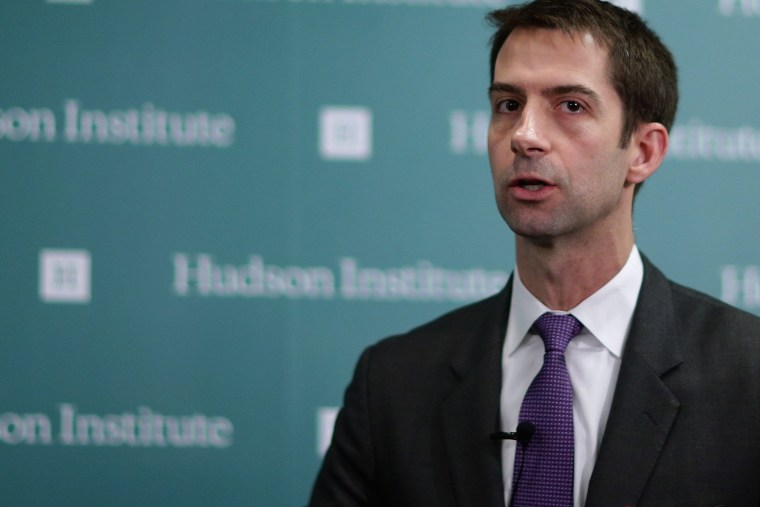Meetings like these are becoming increasingly common, though that's not at all a positive development.
Sen. Tom Cotton (R-Ark.) met with Israeli Prime Minister Benjamin Netanyahu on Monday, part of his weeklong trip to Israel. [...] "Today's meeting only reaffirms my opposition to this deal," Cotton said in a statement after the meeting. "I will stand with Prime Minister Netanyahu and Israel and work with my colleagues in Congress to stop this deal and to ensure that Israel has the means to defend itself against Iran and its terrorist surrogates."
The far-right freshman tweeted a photo of himself and the Israeli prime minister, noting their joint efforts in opposition to the international nuclear agreement with Iran.
And at a certain level, I can appreciate why this seems terribly common. Last year, for example, Sen. Rand Paul (R-Ky.) traveled to Guatemala and worked against U.S. foreign policy during the migrant-children crisis. Before that, other GOP lawmakers have traveled to Israel with the intention of undermining U.S. foreign policy in the Middle East. Cotton himself organized 46 of his Senate Republican colleagues to write a letter to Iranian officials, urging them not to trust the United States during sensitive negotiations.
By this measure, the Arkansas senator's meeting with Netanyahu seems like par for the course. But therein lies the point: the routinization of these incidents is itself dangerous.
Put aside the debate over the Iran deal and consider this story in more abstract terms. An elected U.S. senator traveled abroad as part of his partnership with a foreign official. Together, they hope to undermine American foreign policy.
In the not-too-distant past, this would have been considered a pretty extraordinary breach of U.S. protocol. Now it's simply considered Monday.
Towards the end of the Bush/Cheney era, then-House Speaker Nancy Pelosi (D-Calif.) traveled to Syria and met with Syrian leader Bashar al-Assad. She did not, however, go to sabotage American foreign policy -- she coordinated with Bush administration officials, and State Department personnel literally joined the meeting.
But at the time, the right was outraged anyway. Then-Vice President Dick Cheney complained to Rush Limbaugh, "The president is the one who conducts foreign policy, not the speaker of the House."
Eight years later, is it fair to say the president is still the one who conducts foreign policy, not the junior senator from Arkansas?
